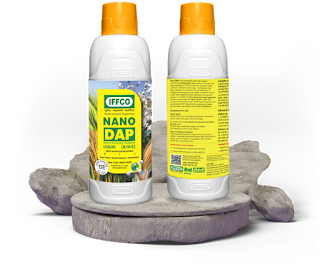4 Noteworthy Uses of DAP in Agriculture
Di-ammonium Phosphate, also known as DAP, is largely used as fertilizer in agriculture due to its high content of essential macronutrients like nitrogen and phosphorus. Nitrogen is one of the key components of chlorophyll, responsible for the green color of plants and the production of food to support their growth. On the other hand, phosphorus is a major nutrient for plants that is vital for cell division and the overall development of the plant. When DAP is properly utilized in farming, it can result in higher crop yield. Mentioned below are 4 noteworthy dap use in agriculture.
Provides Nutrition to Crops
As DAP contains high levels of nitrogen and phosphorus, it is best for soil that lacks essential nutrition. By feeding these macronutrients, DAP enhances the growth and development of the crop. This is because photosynthesis is encouraged in the crops, which is best for their overall health.
Budget-Friendly Fertiliser
DAP is a fertilizer that comes at budget-friendly rates as compared to others available in the market. Affordability is important for Indian farmers as most of them work on small or private lands. DAP being rich in nitrogen and phosphorus means it requires a lesser amount to achieve a high crop yield.
Offers Versatility
Agriculture, being one of the most important sectors in the Indian economy, should have options that offer versatility. DAP is a versatile fertilizer that can be used in a variety of crops, including fruits, vegetables, grains, cereals, and more. This allows farmers to invest in one fertilizer that offers the benefits of multiple fertilizers.
Easy Storage
Many small-scale farmers face the issue of storing and transporting fertilizers. DAP is a fertilizer that has a dry powdery texture and is easy to store and transport. It is a great option for farmers who have to transport large amounts of fertilizers to their farms.
Using DAP in agriculture can prove to be a great decision for farmers as it is responsible for the overall development of the crop. Additionally, it is cost-effective and can be stored easily, which is a big plus for farmers in India as these are the biggest challenges they usually face.
.jpg)



Comments
Post a Comment